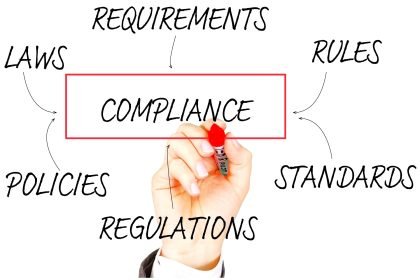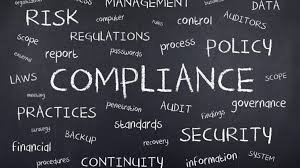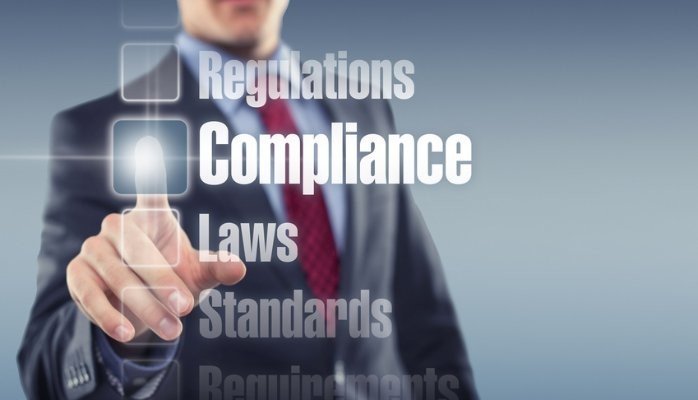Let me take you through all the steps you need to know to make your journey with us easier! The points I will be focusing on are:
- Understanding Government Contracting
- The Role of Compliance in Government Contracting
- Consequences of Non-Compliance
- Best Practices for Ensuring Compliance
- Future Trends in Compliance for Government Contracting
- Conclusion
- FAQs
I. Understanding Government Contracting
Definition and Scope of Government Contract
Government contracting refers to the process by which government agencies procure goods and services from private sector companies. This can range from construction projects to IT services, and even consulting. The scope of government contracts is vast, encompassing local, state, and federal levels, each with its own set of rules and regulations.

B. Types of Government Contracts
There are several types of government contracts, including:
- Fixed-Price Contracts: The contractor agrees to deliver a product or service for a set price.
- Cost-Reimbursement Contracts: The government reimburses the contractor for allowable costs incurred during the project.
- Time-and-Materials Contracts: Payment is based on the time spent and materials used.
Understanding these types helps contractors choose the right approach for their projects.

C. Key Players in Government Contracting
Key players in government contracting include:
- Government Agencies: These are the entities that require goods and services.
- Contractors: Private companies that bid for and execute government contracts.
- Regulatory Bodies: Organizations that oversee compliance and enforce regulations, such as the Federal Acquisition Regulation (FAR) in the U.S.

II. The Role of Compliance in Government Contracting
A. Definition of Compliance in the Context of Government Contracts
Compliance in government contracting refers to adhering to laws, regulations, and guidelines that govern the procurement process. This includes everything from ethical standards to financial reporting requirements.
B. Legal Framework Governing Compliance
The legal framework for compliance is extensive and includes federal laws, state regulations, and specific agency guidelines. Key laws include the FAR, the Truth in Negotiations Act, and the Anti-Kickback Act. These laws are designed to ensure fairness, transparency, and accountability in government contracting.
C. Importance of Compliance for Stakeholders
Compliance is crucial for all stakeholders involved:
- For Contractors: It ensures they can continue to bid on and win contracts.
- For Government Agencies: It helps maintain public trust and ensures taxpayer money is spent wisely.
- For the Public: It guarantees that services and products meet quality and ethical standards.

III. Consequences of Non-Compliance
A. Legal Ramifications for Contractors
Non-compliance can lead to severe legal consequences, including fines, suspension, or even debarment from future contracts. This can cripple a contractor’s business and reputation.
B. Financial Implications of Non-Compliance
The financial implications can be staggering. Contractors may face penalties, loss of revenue from contracts, and increased costs associated with legal battles. For example, a contractor found guilty of fraud may have to repay millions in damages.
C. Impact on Public Trust and Reputation
Non-compliance can erode public trust. When contractors fail to meet compliance standards, it reflects poorly on the government as well. This can lead to a loss of confidence in public institutions and a reluctance to engage with government processes.
IV. Best Practices for Ensuring Compliance
A. Developing a Compliance Program
Creating a robust compliance program is essential. This should include clear policies, procedures, and a designated compliance officer to oversee adherence to regulations.
B. Training and Education for Employees
Regular training sessions for employees on compliance issues are vital. This ensures that everyone understands their responsibilities and the importance of compliance in their daily tasks.
C. Regular Audits and Assessments
Conducting regular audits helps identify potential compliance issues before they escalate. Assessments can provide insights into areas needing improvement and ensure that the compliance program is effective.

V. Future Trends in Compliance for Government Contracting
A. Evolving Regulations and Standards
As the landscape of government contracting changes, so do the regulations. Contractors must stay informed about new laws and standards to remain compliant.
B. Technology’s Role in Enhancing Compliance
Technology is playing an increasingly important role in compliance. Tools like compliance management software can help track regulations, manage documentation, and streamline reporting processes.
C. The Growing Importance of Ethical Practices
Ethical practices are becoming more critical in government contracting. Stakeholders are placing greater emphasis on integrity, transparency, and accountability, making it essential for contractors to adopt ethical standards in their operations.

Conclusion
- Compliance in government contracting is not just a legal obligation; it is a cornerstone of integrity and accountability.
- As regulations evolve and the landscape changes, the need for vigilance in compliance remains paramount. Contractors must prioritize compliance to protect their businesses, maintain public trust, and contribute to the effective use of taxpayer dollars.
FAQs

What are the main laws governing government contracting compliance?
The main laws include the Federal Acquisition Regulation (FAR), the Truth in Negotiations Act, and the Anti-Kickback Act, among others.
How can small businesses ensure they meet compliance requirements?
Small businesses can ensure compliance by developing a clear compliance program, seeking guidance from experienced professionals, and utilizing available resources and training.
What should a contractor do if they suspect non-compliance?
If a contractor suspects non-compliance, they should conduct an internal review, consult with legal counsel, and take corrective actions as necessary to address the issue.